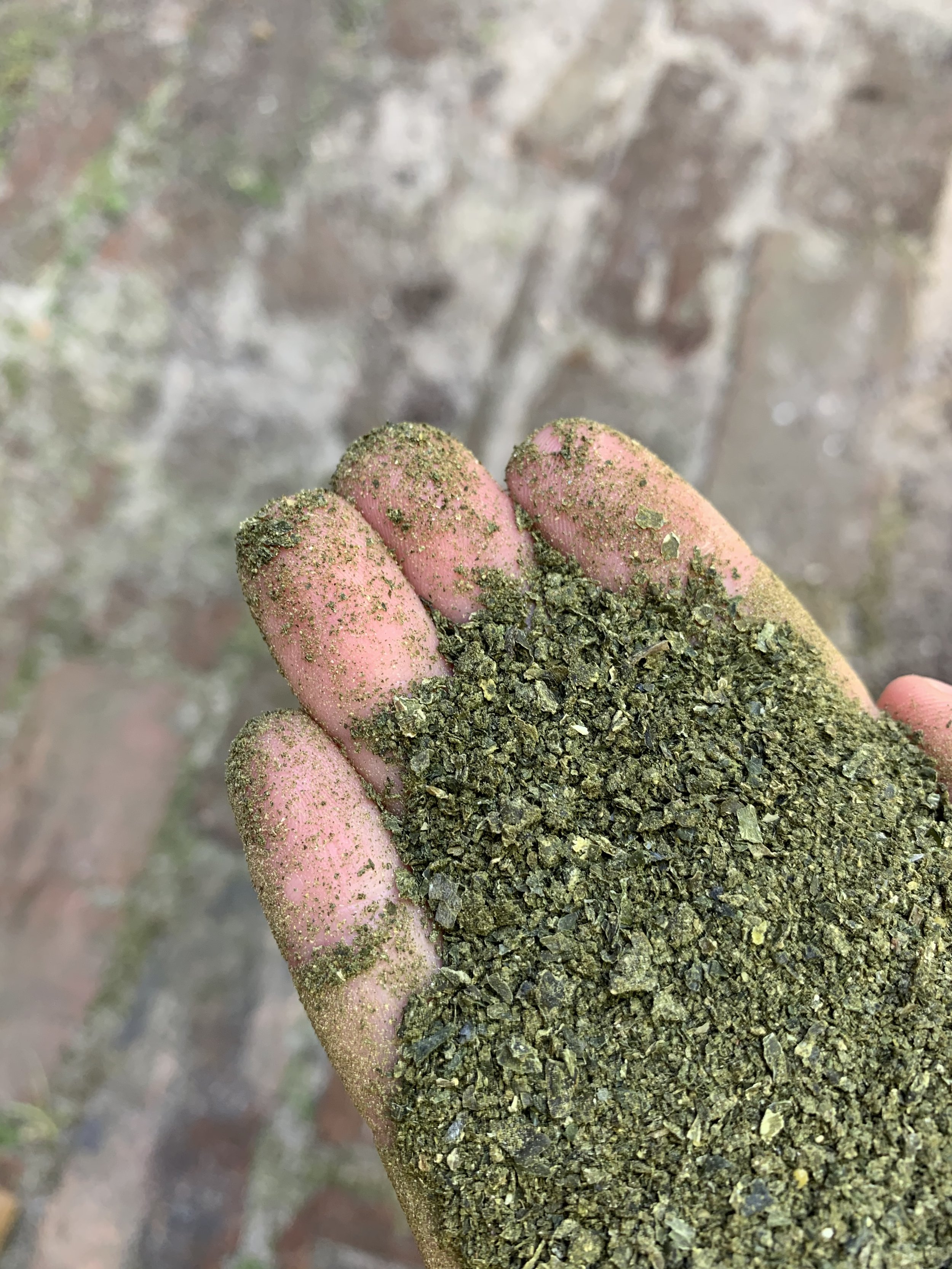Bags & Bricks: The Ocean's Promise
One of the primary goals of the Lazy Point Farms project is to support both ocean farmers and ordinary consumers, making it easier for everyone to be kind to the planet. Not only are seaweed and kelp forests directly beneficial to the ecosystem, providing habitats for marine life and filtering excess nitrogen and other pollutants out of coastal waterways, but kelp and other algae show immense promise as a biodegradable and renewable alternative to plastics and other consumer goods which tend to wreak havoc on the planet.
It's estimated that 8.3 million tons of plastic that is discarded end up in the sea yearly. Even small amounts of micro-plastics can be deadly to ocean fauna. And despite our best efforts, only 9% of plastic is recycled. Moreover, plastic is harmful long before it is discarded. Transforming petrochemicals into plastic gloves, bags, bottles and similar objects creates greenhouse gases while spewing toxic chemicals into the surrounding air. And yet, as the recent pandemic demonstrated, there are times when we NEED sterile, single-use items.
So how can we have our cake and eat it too?
The carbohydrate and sugar content of seaweed and kelp closely resembles that of crude oil and similar materials which form the basis of traditional polymers, opening the door to the possibility of a bio-plastic manufactured from algae. Unlike crude oil, seaweed is a resource with nearly infinite potential for renewability. And even among potential materials vying for favor in the nascent bio-plastics kingdom, marine organisms have a clear benefit. Grown in the ocean rather than on land like bamboo and many of the other crops we typically think of as renewable, seaweed and kelp will never compete with land space for food crops. And as the seas rise and the earth warms, the increasingly vanishing amount of arable land is definitely set to be a concern.
Of course, like the seaweed industry itself, the development of bioplastics is still taking baby steps out of its infancy. There are any number of ways in which a hydrophobic, permeable, edible, and biodegradable materials might be used in manufacturing, but most of them are still theoretical. Still, we've heard of a number of exciting developments recently involving innovative aquaculture; five of the eight finalists for fashion giant Tom Ford's recent Plastic Innovation Prize demonstrated a number of potential uses seaweed, harnessing kelp and other algae to produce biofilms made from plastic alternatives. Similarly Puerto Morelos resident Omar Vázquez Sánchez and his employees recently begun collecting sargassum—a brown seaweed related to our own sugar kelp—as it washes ashore on the beaches of Quintana Roo, near Cancun. When combined with a mix of limestone and other organic materials, the seaweed can be formed into construction-ready bricks and has already been produced to create several homes for low-income residents—the first of which is still intact after surviving five hurricanes and six tropical storms.
Home being built of Sánchez' “Sargablock”
The potential that kelp has to encourage development of the bio-plastics industry is, of course, just one aspect of the way in which seaweed farming might benefit the planet. Sugar kelp—and other seaweeds—do not require fresh water, fertilizer, or arable land to grow. Moreover, these organisms function as a natural carbon sink, making sugar kelp farming literally a two pronged approach towards achieving climate justice goals.
If kelp farmers can harvest a crop that helps rehabilitate local waterways as it grows and then partner with scientists and other entrepreneurs to produce bio-plastic alternatives to the single-use plastic based items which we have come to depend on in modern life—whether that be surgical gloves or grocery bags, that’s absolutely a move in the right direction.
That's why we're always thrilled to hear about projects like Vasquez' which simultaneously tackle climate issues and poverty with locally sourced solutions—especially when they involve seaweed! After all, it is in the same spirit that we hope to encourage New York's own fledgling seaweed and kelp industry to clean up coastal waterways and create sustainable jobs at the same time.



